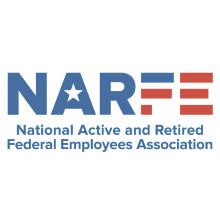|
The voice of career Federal executives since 1980 FOR IMMEDIATE RELEASE Contact Information: Are Declines in U.S. Federal Workforce Capabilities Putting Our Government at Risk of Failing? The Senior Executives Association (SEA), in partnership with university and think tank researchers, announced today the release of a major academic study that analyzed the impact of numerous long-term trends that the study’s authors have concluded have significantly diminished the capacity of the Federal Government’s workforce and institutions to respond to rapid cycle stressful events. “Our study’s findings pointed toward the most extreme plausible explanations for the trends we analyzed and their future implications,” said Dr. Molly Jahn, a professor at the University of Wisconsin-Madison and a former senior political appointee at the U.S. Department of Agriculture. “We concluded that U.S. Federal Government civil servants are the canaries in the mines of the Nation, telling us that the air is growing dangerously foul. Perhaps not just the capacity of the U.S. Federal Government to respond to domestic and foreign crises is at risk, but also our civic norms and constitutional order.” In addition to Dr. Jahn, the lead principal investigators for the study, “Are Declines in U.S. Federal Workforce Capabilities Putting Our Government at Risk of Failing?” were Dr. Gregory F. Treverton, former Chair of the National Intelligence Council and now professor of practice at the University of Southern California, and Dr. David A. Bray, executive director of the People-Centered Internet coalition and a faculty member at Singularity University. SEA provided research, data and analytical support for the study. SEA President Bill Valdez, said that study’s conclusions “are chilling and should put our Nation on high alert that vital national institutions are in danger of failing just when we need them the most. This study is a clarion call for action that the Congress and the Administration must give serious consideration to when it comes to strengthening the government’s capacity to respond to what will certainly be tremendous and unexpected challenges in our near future.” Six critical themes run through the study:
“Has the U.S. Federal Government reached a point where critical operations might fail in stressful events that are likely to occur? This was the animating question behind our study,” said Dr. Treverton. “Based on the data we collected and analyzed, it appears that the answer to this critical question is emphatically: yes.” Dr. Bray noted that the erosion in the United States’ capacity to respond to rapid and unexpected changes has been happening for decades and for the most part has gone undetected and unaddressed. He also observed that when the external environment changes more rapidly than an organization's ability to adapt to such changes, that's a recipe for big problems ahead. “We tend to ‘normalize’ our current circumstances by comparing them with other challenging periods in U.S. history,” Dr. Bray said. “The story goes something like: ‘This may be extreme, but we’ve seen it before.’ This tendency to normalize risks obscuring otherwise obvious indications that our current circumstances are very abnormal and may represent circumstances that are unprecedented. We are experiencing rapid social global and social changes, external to the U.S. Federal Government, at a pace that strains all organizations to deliver on their mission, adapt, and keep up with all the changes.” The study’s authors concluded that both Congress and the Administration should immediately devote attention and resources to solutions to both increase the ability of the U.S. Federal Government workforce and the United States as a whole to respond to rapid and unexpected changes. “Seminal reports from the National Academy of Public Administration and others have provided a rich backdrop of scholarship for renewal and modernization efforts,” Dr. Jahn said. “Many of our recommendations build upon similar themes, such as restoring pride in civil service, restoring career civil service leadership capabilities, and placing greater emphasis on mission rather than bureaucratic processes.” Dr. Treverton concluded: “Ultimately, the question is: Which kind of government do we, as citizens, want? Is one that cannot attract and retain talent, one that is at risk of failing even in a minor crisis good enough? Or do we want a robust institution that is equipped to respond to the complex challenges of our time? The Nation’s answer to that question contains the roots of both the tensions and possible solutions of the problems we currently face.” ### The Senior Executives Association (SEA) is a professional association representing Senior Executive Service members and other career Federal executives. Founded in 1980, SEA’s goals are to improve the efficiency, effectiveness, and productivity of the Federal government; to advance the professionalism and advocate the interests of career Federal executives; and to enhance public recognition of their contributions. For more information, visit www.seniorexecs.org. |












